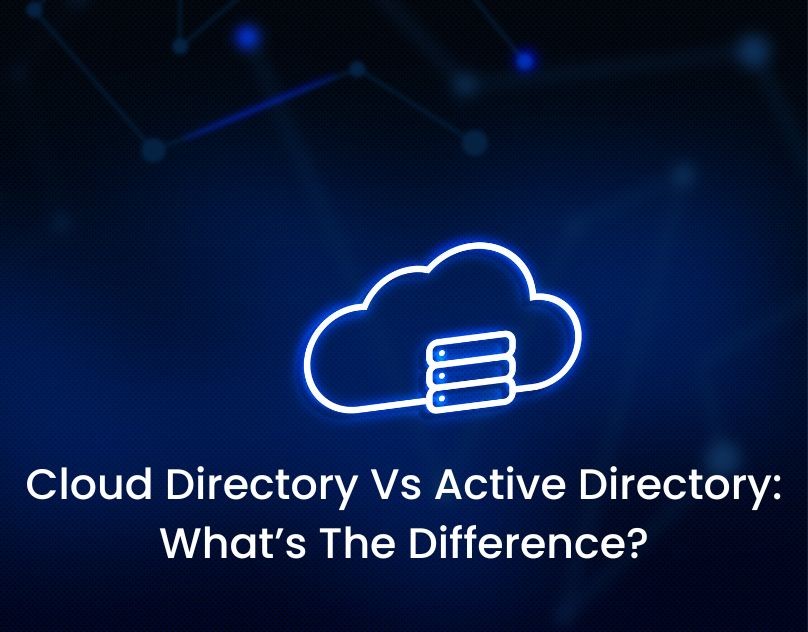Cloud Directory Vs Active Directory: What’s The Difference?
Knowing the difference between Cloud Directory Vs Active Directory, how much time you have to dedicate to your business, what your needs are, and if you want to outsource your content will help you decide which path is right for you!
Publié 3 années depuis dans Événements actuels, actualisé 3 années depuis.
Cloud Directory Vs Active Directory: What’s The Difference?

Introduction
Cloud Directory and Active Directory are two of the most popular directory services used by organizations today. While both have their merits, there are some key differences that organizations should be aware of when choosing a directory service for their needs.
Active Directory has been around for over 20 years and is the most widely used directory service. It is typically used by organizations that have on-premises Active Directory Domain Services (AD DS) deployed. Cloud Directory, on the other hand, is a newer directory service that is growing in popularity due to its ease of use and scalability.
So, Cloud Directory Vs Active Directory what’s the difference between these two directory services? Read on to find out!
Defining Active Directory
Microsoft created the directory service known as Active Directory(AD) for Windows domain networks. It is included in most Windows Server operating systems as a set of processes and services that manage user data, security, and access control.
The main difference between Cloud Directory Vs Active Directory is that AD is designed to store and manage data in a hierarchical way, making it easy to administer large numbers of users and resources. It can also be used to provide single sign-on (SSO) capabilities, allowing users to access all of their resources with a single set of credentials.
AD is a critical component of any Windows network and is used by administrators to manage users, groups, computers, and other resources.
Defining Cloud Directory
A Cloud Directory is a directory service that is delivered over the internet. It is a managed service that provides a central repository for users, groups, and other resources that can be accessed by users from any location.
The benefits of using a cloud directory include convenience, scalability, and flexibility. With a cloud directory, there is no need to install and maintain on-premises directory infrastructure. Additionally, a cloud directory can be scaled up or down as needed, and it can be accessed from any internet-connected device.
If you are considering using a cloud directory for your organization, there are a few things to keep in mind. First, you will need to choose a provider that offers a robust and reliable service. Second, you will need to ensure that your directory data is secure and compliant with all applicable regulations.
Just like Cloud Directory vs Active Directory, there is a difference between Cloud Computing and Cloud Directory. Learn more in Detail: Cloud Computing vs Cloud Directory: Key Differences
Cloud Directory vs Active Directory: Similarities and Differences
The cloud directory and Active Directory are two data storage systems that are used to store and manage user information. They are both systems that can be used to manage large numbers of users, but there are some key differences between the two.
The cloud directory is a newer system that is designed to be used with cloud-based applications. It is scalable and can be used to manage a large number of users. Active Directory, on the other hand, is a traditional on-premises data storage system. It is not as scalable as the cloud directory, but it is more secure. To know more about Cloud Directory read our blog: What is Cloud Directory? How Does It Work?
So, Cloud Directory Vs Active Directory which system is better? It really depends on your needs. If you are looking for a scalable data storage system to use with cloud-based applications, then the cloud directory is a good choice. If you need a more secure data storage system, then the Active Directory is a good choice.
Wrapping Up
Cloud directory services are becoming more popular as they offer a number of advantages over traditional Active Directory deployments. One of the key advantages of Cloud Directory Vs Active Directory is that cloud directory services can be managed using a web-based interface, allowing administrators to manage the directory even when they are not on-site.
One downside of using a cloud directory is that it can be difficult to maintain. If the cloud directory is hosted on a commercial service, it can be difficult to access and update the data. If the cloud directory is hosted on a private server, it can be difficult to find the administrator to update the data.
Knowing the difference between Cloud Directory Vs Active Directory, how much time you have to dedicate to your business, what your needs are, and if you want to outsource your content will help you decide which path is right for you!
Hope you liked our blog on Cloud Directory Vs Active Directory, Stay tuned for more such content.
If you have any quires reach us out on @f60 host.









